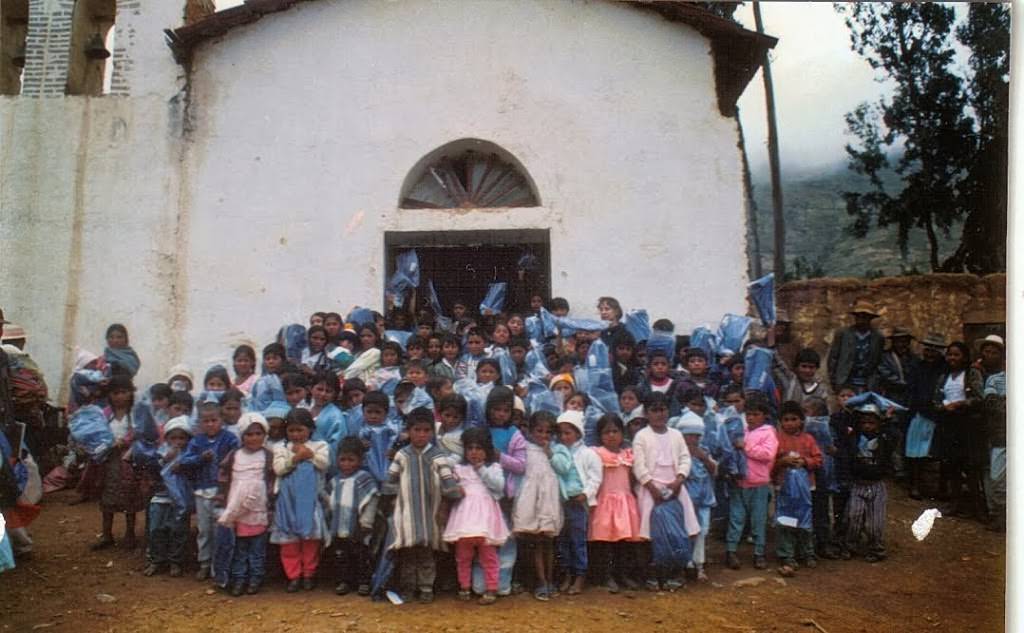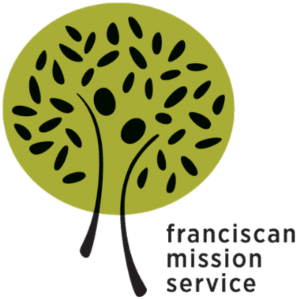Returned Missioner Lorraine Kelley on Mission and Reconciliation Pt. III

This is part of a three part series by Lorraine Kelley: “Mission and Reconciliation”
- Continuing our series Sacraments and Social Mission: Living the Gospel, Being Disciples, returned missioner Lorraine Kelley (Bolivia, 1994-2002) writes about her faith’s relationship to the Sacrament of Reconciliation and experiences on mission.
Mission is a very important facet of the Church. It would be my wish that all members of the Church participate in mission. For me, mission is the fulfillment of all of the Church’s teachings, of the teachings of Jesus Christ our Lord. As St. James said, “faith without works is dead”. Our mission does not have to be overseas, or even a standard in-country mission, but something that is a fruit of our faith, a call to walk alongside those affected by injustices – to be a part of the plan of salvation -peace for all through love, understanding and forgiveness, which ultimately leads to God’s kingdom on earth and eternal life. Of all the stories of St. Francis, the one where he sought to reconcile with the Sultan of Egypt is one of my favorites. Francis did not believe in war and violence. He approached the Sultan hoping to win him over to his way of thinking and convert him to Christianity. The two had a very peaceful and respectful discussion, and though no one is exactly sure of all they talked about, they likely spoke of their religious beliefs and maybe of current and past events and how that affected them personally.
 |
| In front of the Church with the children |
In the end, they both had a more accurate perspective of their religions and personal lives. The meeting of these two men was an example of admitting that neither you nor your country, nor the actions of religious persons, is perfect, and you don’t have all the answers or hold all of the truth. It was about mutual respect and even though Francis could not convince the Sultan to believe the same way he did, he respected his opinions and beliefs and left peacefully, making a new friend. After that Francis was able to tell his followers some of the good points of Islam and what Christians could learn from them, and the Sultan would eventually give control of the Holy Land to the Christians. This is what we can take with us into mission – not pretending to be the one with all of the answers, but trying to understand another’s point of view and forgiving ourselves and others for offenses that have been created through misunderstandings. Although we may not always agree, we can respect each other’s opinions and ideas. This demonstrates a deep care for one another and is felt by all parties involved. We can walk alongside those who are suffering and be their friends, without prejudices of who they are or why they may be in the circumstance they are in. It leaves us thinking that maybe there is hope – hope for a future of mutual respect and acceptance – one of understanding and peace – a world where we all can thrive without barriers and in the absence of violence and injustice that destroys our souls. A place where we are all reconciled with God and can flourish in God’ never-ending love.
Lorraine Kelley was on mission with Franciscan Mission Service from 1994-2002 serving in the Department of Cochabamba, Bolivia in a barrio of ex-miners called Villa Busch, a mountain community named Khuluyu and ultimately in the pueblo of Sacaba, where we started the nutrition and learning center. She presently resides in a quaint, New England town in Connecticut with her husband Diego and daughter Annamaria, 14, where she serves the elderly population as their Municipal Agent and Senior Services Counselor.
Tagged in:


